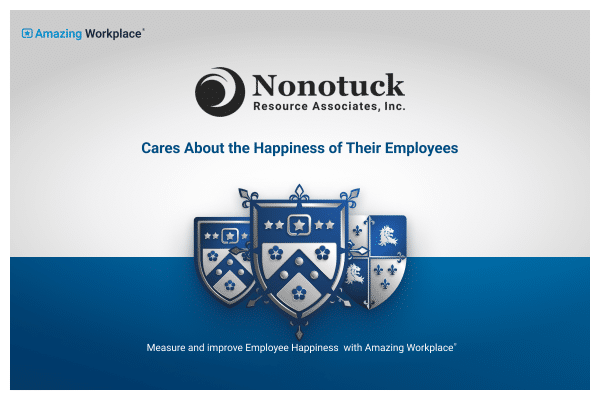7 Signs of an Unhealthy Work Environment
A healthy work environment is the antidote to workers who are “quiet quitting.”

Did you know that nearly two-thirds of workers are looking for new jobs? And 21 percent are “quiet quitting?”
If your employees are unhappy with their present work culture, they may be sprucing up their resumes, too. But if you’re a proactive leader, you can transform your work environment when you know the red flags to watch out for.
To keep your organization thriving, it’s smart to be alert to how your employees are behaving. here are 7 signs of an unhealthy work environment — and how to fix it!
1. Poor Morale
Do your employees lack enthusiasm for their work? Take notice if your employees are fatigued or on edge. They may be struggling with their mental and physical health due to an unhealthy work environment.
Unhappy employees won’t bring excitement to what they do, and it can rub off on their coworkers. When one person feels animosity or apathy, the person at the neighboring desk may start feeling that way, too.
You may even notice an uptick in absences. Employees who normally reserve their PTO for planned vacations may change their plans. They could feel compelled to take personal days more frequently to make the workweek seem shorter.
Similarly, employees may be using their paid sick leave to meet with a mental health practitioner or deal with other health issues. A toxic workplace can trigger higher blood pressure and poor sleep as well.
2. Increased Turnover Rate
Employees who feel undervalued or underpaid will leave for better jobs. Keep a weather eye on how many employees come and go.
Start by looking at how your human resources team and supervisors are spending their time. Are they devoting a lot of time to posting job ads and conducting orientation meetings for new hires? If they’re trying to fill vacancies frequently, you may have a turnover problem.
It’s worth tracking how many employees turn in resignations. Then you can compare totals from one quarter to the next. Your human resources office can handle gathering data and conducting exit interviews. But the more important step is taking the time to assess the results.
An uptick in employee churn could indicate deeper problems. If there are common reasons for leaving, identify them in your organization’s quarterly meeting. Then map out a few clear ways to help build satisfaction and loyalty.
Consider offering measures to boost employee work-life balance. This could include hybrid work options or more regular bonuses to high achievers.
Offer smaller incentives, like occasional free lunches or gift certificates, too. And add more plants and better lights to make your workplace more comfortable.
3. Growing Gossip Mill
An active gossip mill is a clear sign of an unhealthy work environment. If employees feel distrustful toward others, they’ll tend to look for alliances with coworkers. And they’ll find for ways to do this during quick hallway conversations, lunch breaks, or other times between tasks. Team members may feel uncomfortable speaking candidly to everyone. As a result, they will seek out like-minded confidants.
For instance, a marketing team that doesn’t work well together could fracture into smaller factions. Gossiping coworkers can provide tidbits of information that affirm bad feelings.
You may notice that employees congregate more frequently in the lunchroom or at the water cooler. More frequent breaks also can suggest a movement toward gossiping. And unfortunately, gossiping can lead to misinformation or snide remarks that only make things worse.
Focus on how you can provide the most transparent communication to employees. Offer a monthly or weekly video message or email update that lays out achievements as well as upcoming hurdles. And hold more in-person or video-based team meetings to ensure regular communication on a smaller scale.
4. Favoritism Practices
Cronyism is the practice of promoting close friends or family without considering their qualifications. For example, an employee could see someone promoted who has close ties to an existing leader. This person could be a friend or share the same alma mater.
The employees who’ve been passed over might feel like they’ll never be able to move higher in the organization. This is particularly true if the promoted employee lacks the right experience or subject matter expertise. Favoritism practices can lead to feelings of hopelessness and resentment.
Step back and make sure that you’re being objective in how you handle employee promotions and raises. Conducting an interview process for each job vacancy is one way to do this. And if you make an internal promotion, be prepared to validate it.
For new hires, consider sharing company-wide memos that detail each person’s unique qualifications. This will create a more transparent work culture that your employees will appreciate.
5. Egocentric Leadership
If you’re working on improving your workplace, take stock of decision-making methods and actions. If your decisions have only helped those at the top, your employees probably are aware.
In a similar vein, if big decisions always come as a surprise, your employees may want more of a stake in the game. Find ways to involve employees more in decision-making processes. Also, revisit the mission statement in your business plan to make sure you’re meeting organizational goals.
You may even want to bring in a third-party consultant for an outside perspective. This demonstrates that you’re willing to consider other approaches to handling a problem. In-depth smart surveys can provide valuable insights you would otherwise not have access to.
6. A Culture of Fear
In a healthy workplace, employees feel comfortable speaking candidly with coworkers and supervisors. Better yet, supervisors are proactive about hosting one-on-one conversations with employees.
When a supervisor seems untouchable, this can create a culture of fear. That is, employees won’t feel like they have the clout to say anything. A culture of fear feeds into other organizational problems, as well. Employees may avoid voicing good ideas because they feel like they don’t matter. Worse yet, they might fear being disciplined or terminated if they say something that goes against the grain.
How can you fix this issue? Ensure that all managers have weekly meetings with individual team members. And use an internal platform to promote quick communication through video chats or messages.
7. Quiet Quitting and Slow Company Growth
Ultimately, toxic work environments can end up hurting your company’s productivity. When employees disengage and practice “quiet quitting,” they aren’t collaborative or communicative. You miss out on better workflows and ideas. You may even see revenue go down.
Disengaged employees may be reserved or standoffish. They may overlook checking in with questions because they don’t care as much about the outcome. Further, you might notice that some employees are less likely to speak up during meetings.
And, of course, disengagement won’t exactly lead to glowing reviews. Your online profile could take a tumble if your employees are unhappy. When you need to recruit top talent, the last thing you want is an unfavorable reputation online.
One way to encourage more productivity is through quarterly bonuses. You can award all members of the company a 2% raise, for instance, if the company meets a pre-determined financial goal. Offering a little money every 3 months is a great way to encourage people to contribute to the best of their abilities.
If you don’t have the money to support more frequent raises and bonuses, there are other options. Introduce more frequent gestures of appreciation. These can be email shoutouts that help your team members feel valued.
Give them encouraging handwritten cards after they seal the deal on a new account. Provide public praise when they reach a professional milestone.
Create a Better Work Environment
The antidote to the quiet quitting is a supportive and healthy work environment where employees can thrive. As a bonus, you might just build a more productive office. Be on the lookout for signs of quiet quitting – gossip, missed deadlines, increased absences, or hesitant communication.
Most importantly, try to be an inclusive leader who focuses on strategies to improve morale.
Need help creating a more positive work culture? Contact us and we can help!


